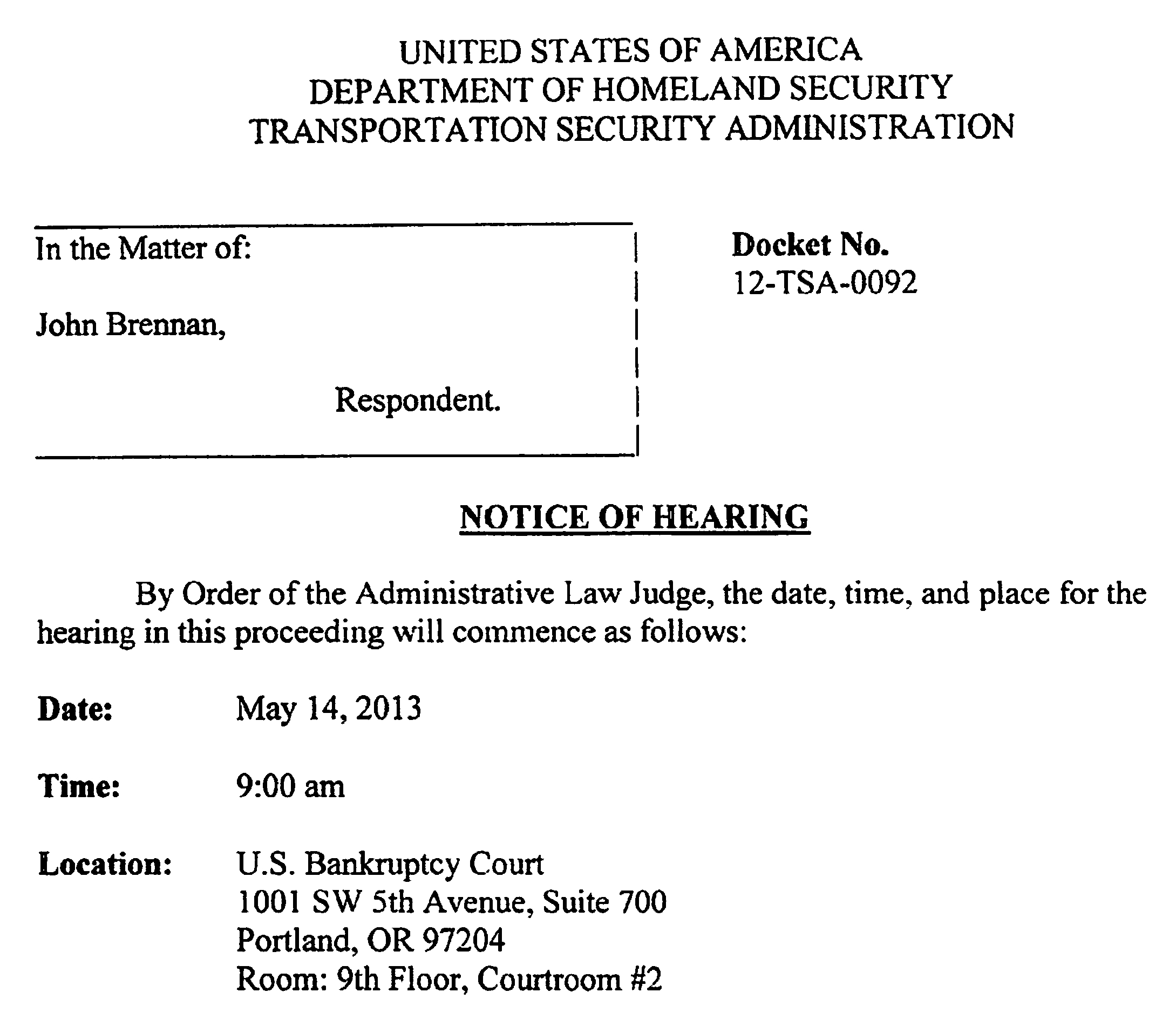TSA never got OMB approval for “Certification of ID” (Form 415)
In June 2008, the TSA began requiring would-be travelers who didn’t show government-issued ID credentials to fill out and sign — under penalty of perjury — a new “Certification of Identity” form, and answer questions based on the records about them retrieved by a TSA contractor from some commercial data-aggregation company.
Since then, we’ve made a series of FOIA requests to try to obtain the current form, the rules (if any) for its use, and whether the TSA had gotten this collection of information approved by the Office of Management and Budget (OMB), as required by the Paperwork Reduction Act (PRA).
We’ve recently received a response to one of our FOIA requests, filed more than two years ago, which includes the latest version of TSA Form 415 and makes clear that the TSA has never obtained the requisite OMB approval.
In the absence of OMB approval and a valid OMB control number on TSA Form 415, travelers who decline to respond to these questions or fill out or sign this form cannot be subjected to any government sanctions, including TSA “civil penalties”.
There are several noteworthy features of the latest documents released by the TSA in response to our FOIA request, particularly TSA Form 415 itself and this email thread regarding how the form is used and whether it requires OMB approval.
First, the e-mail correspondence with the FOIA Office to identify records responsive to our request appears to have been completed within a few weeks. Then the TSA sat on the response for more than two years, presumably while waiting for approval from the DHS FOIA “front office”. From responses to our previous requests, we know that the FOIA “front office” has ordered the TSA not to respond to our requests without this approval, even if responses are complete and otherwise ready to go out.
Second, if the TSA’s latest FOIA response to our request for the “most recent version” is to be believed, the version of the “Certification of Identity” currently in use is this TSA Form 415 dated August 2008.
Third, the TSA never even applied for OMB approval for TSA Form 415 or its unnumbered predecessor “Certification of Identity” form, because the office responsible for obtaining OMB approval was led to believe that the form was to be completed by TSA staff, not by travelers (a manifestly implausible claim, since all versions of the form have included a space labeled for the signature of the would-be traveler).
Fourth, the TSA completely misunderstood the statutory criteria for determining when OMB approval is required. Who fills out the form, or whether there even is a paper form (or information is collected by verbal questioning), is completely irrelevant to the definition in the Paperwork Reduction Act of a “collection of information” for which OMB approval is required:
[T]he term “collection of information” … means the obtaining, causing to be obtained, soliciting, or requiring the disclosure to third parties or the public, of facts or opinions by or for an agency, regardless of form or format, calling for … answers to identical questions posed to, or identical reporting or recordkeeping requirements imposed on, ten or more persons, other than agencies, instrumentalities, or employees of the United States….
